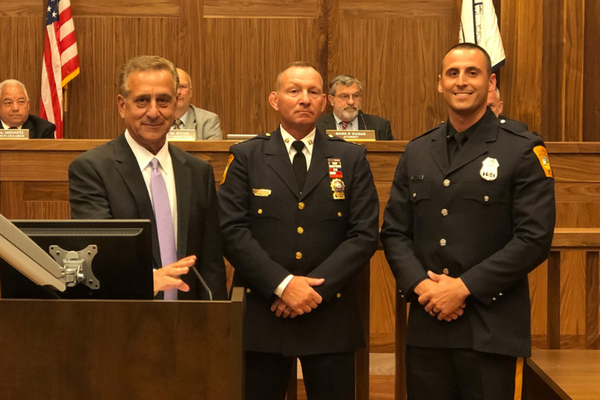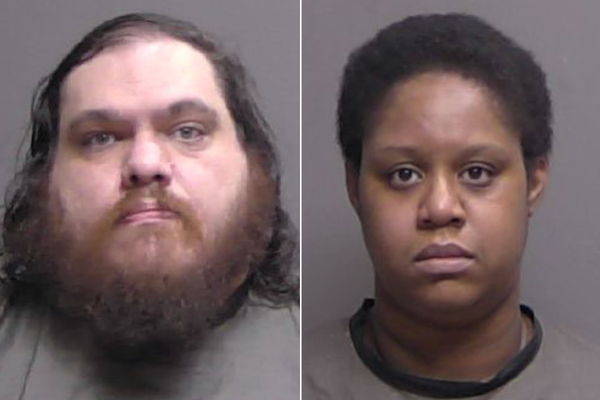
In the days leading up to the trial in Dominion Voting Systems’ defamation lawsuit against Fox News, the network’s top brass began to realize there was a major problem in their legal defense strategy. Namely, that it was not going to work.
In a widely anticipated new book, Network of Lies: The Epic Saga of Fox News, Donald Trump, and the Battle for American Democracy, longtime media reporter (and noted Fox critic) Brian Stelter chronicles the legal maneuvering and corporate faceplants of Rupert Murdoch’s crown jewel and cash cow as it defended itself against claims it had promoted the theory that the 2020 presidential election had been stolen.
Stelter, writing his second book about Fox News, weaves together thousands of pages of legal documents and testimony, along with much of his own reporting, to craft a single compelling narrative about how Fox’s legal defense started to fall in on itself, and how Murdoch woke up to that fact. After what should have been a devastating March ruling that there was no evidence Fox News had “conducted, good-faith, disinterested reporting,” its lawyers remained bafflingly unfazed.
“Fox, incredibly, magically, still believed it could turn up in court with a shoeshine and a smile holding a handful of deuces and threes and find some other card to play,” Stelter writes.
As the trial approached and with it the realization that Murdoch might have to take the witness stand, Fox’s legal and executive team also realized that a series of glaring setbacks over the course of the pretrial proceedings had caught up with the network.
As Stelter tells it, Fox News’ argument fell apart during the last five minutes of Rupert Murdoch’s deposition. Stelter, who covered the media industry for years at both the New York Times and CNN, saw the deposition as the critical moment in the case because Dominion’s lawyers caught Rupert in the “fib” that he wasn’t aware of what was happening at Fox News during its post-election coverage in 2020. Fox’s lawyers had spent months meticulously building a case that was obliterated by none other than the company’s founder and leader, according to Network of Lies.
“It feels to me having reread this deposition many times that it begins to dawn on Rupert just how involved Fox was, just how culpable Fox was,” Stelter says.
Fox Corp. settled for $787 million the day the trial was set to begin. Two days before the start of the trial, in which Rupert would have to testify, he and his son Lachlan Murdoch, then CEO of Fox Corporation, agreed to go above Fox’s previously stated settlement limit of $550 million. Once this happened, it became clear a settlement would happen, avoiding a trial. The decision came from the highest levels of the organization, meaning both father and son signed off.
“100% this settlement was driven by Lachlan as the CEO of Fox Corp, doing what he said was best for the company from a fiduciary standpoint,” Stelter told Fortune.
It begins to dawn on Rupert
Even getting Fox’s legal team to allow Dominion’s lawyers to depose Murdoch involved some legal wrangling. Fox lawyers stonewalled Dominion on the grounds that the suit was against Fox News, rather than its parent company Fox Corp, exempting Murdoch. Dominion’s lawyers answered by simply filing a claim against Fox Corp, which was then forced to offer up Murdoch for a deposition.
Murdoch opted to do his mandatory seven-hour-long deposition in-person, split over two days, rather than in one sitting via Zoom as many other witnesses had. The deposition was important because Murdoch was Fox’s founder, but also because it was a rare glimpse into a notoriously media shy figure.
Noting that Murdoch never gives interviews and never speaks in public, Stelter says the deposition’s importance shouldn’t be understated. “This deposition is really one of the only windows we have into his brain, into his views, into his beliefs. That's why it's so valuable.”
By the end of the deposition it would become clear why Murdoch was so averse to making public statements. After the usual non-answers that characterize corporate litigation, Dominion’s lawyers struck legal gold in the last five minutes. Dominion's lawyers presented Murdoch with a 17-page report he had commissioned from Fox’s PR department to assess whether Fox News on-air personalities endorsed the claims against Dominion. (Stelter says his reporting indicates Murdoch did so on advice from Mitch McConnel).
The transcripts were both damning and eye-opening for Murdoch, according to Stelter. “They were showing him all these examples of Fox hosts coming right up against the line of encouraging people to fly to DC on January 6.”
When asked about the report, Murdoch is forced to concede under oath that Fox’s commentators did in fact promote the claim the election had been stolen.
“Rupert has all these BS defenses that fall apart when he's under oath,” Stelter says. “Then at the very end, it seems to dawn on him that Fox did endorse this Trump lie about a stolen election.”
As soon as questioning concludes, Murdoch and the Dominion lawyers realize the significance of what has just taken place. The only person in the room who doesn’t appears to be Fox’s chief legal officer Viet Dinh, who tells Murdoch “They didn’t lay a finger on you.”
Murdoch then points to Dominion’s lawyer and says, he “would disagree with you.”
To which Dominion’s lawyer replied, “Indeed I do.”
Murdoch’s personal life could have also played a role in distracting him from the lawsuit’s gravity in the days leading into the trial. In March, a month before the trial, Murdoch proposed to his then-girlfriend Ann Lesley Smith. By April the engagement had been called off. Stelter speculated that “he may well have been heartbroken during the very days that this case was steaming toward trial.”
Fox’s top lawyer was convinced the case would go their way
In Network of Lies, Stelter recounts how in the weeks leading up to the trial, Fox’s legal department was convinced the case would go all the way to the Supreme Court, which would eventually rule in their favor. At Fox, Dinh was “uniformly blamed for underestimating Dominion and botching the response,” Stelter wrote.
Beyond Murdoch’s poor deposition, Fox’s lawyers had angered the judge by hiding Murdoch’s role as Fox News’ executive chairman. Those two developments tipped off Rupert and Lachlan that the company’s legal strategy wasn’t working.
As the trial approached, Lachlan and Rupert Murdoch seemed to have resigned themselves that they would lose in court. Dinh was still advising them that they would win on appeal, according to Network of Lies. The proposition seemed shaky considering the judge was “really incensed” that he discovered Fox had kept Rupert Murdoch’s true role Fox News from him. If the judge had known Murdoch was in fact a named officer of Fox News he likely would have allowed Dominion’s lawyers more access to Rupert’s documents and made different rulings earlier in the case about his, Lachlan’s, and Fox Corp’s involvement in any alleged defamation, Stelter says.
“It leads me to the conclusion that Fox’s lawyers were desperately trying to shield Rupert from further questioning because they knew that that could be damaging to their case,” Stelter says.
Dinh’s misjudgment ultimately cost him his job. The lawyer, who was a former assistant Attorney General during President George W. Bush’s administration, left Fox “on a Friday in August, primed for news-burying” with a $23 million pay package, Stelter writes.
When asked why Fox so plainly misjudged its legal case, Stelter is somewhat puzzled, attributing it, at least initially, to hubris. “Maybe they were unable to see the case from the eyes of the Dominion lawyers, and thus overestimated the strength of the Fox case.” As for why Dinh specifically adopted the strategy he did, Stelter answers: “Only Viet Dinh knows.”







